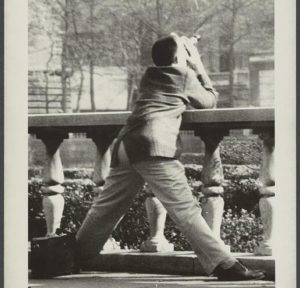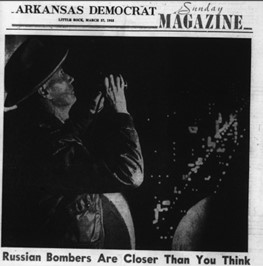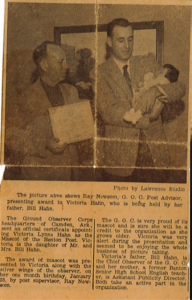calsfoundation@cals.org
In Search of the Ground Observer Corps

Before coming to work in the CALS Roberts Library, I was a library assistant in the Reference Department in the CALS Main Library for thirty years. There were so many aspects to being a reference librarian that made the job such a pleasure. Fortunately, my role at the Roberts Library allows me to provide the same kinds of reference services but focused on Arkansas history and genealogy.
At the beginning of my career with the Central Arkansas Library System, funding was scarce. We had to scour what little resource material we had to try and answer patron questions—but, of course, we were always up for the hunt. Times are so much better now, and technology has made research so much easier. Even so, patrons can bring some tough questions. But it has always been so satisfying to find that needle in a haystack! The most rewarding patron interaction is when you are asked about something you may never have heard of or have little knowledge about, but with a little questioning (what librarians call the reference interview), you can find an answer or lead the patron to source material. A plus for the librarian is learning something new, and future patrons will think you are one of the smartest people in the world! My favorite saying is, “Librarians do not have all the answers; we just know where to find them.”
This leads me to a patron interaction I had a few weeks ago. He had called looking for some information on the history of a building in Gentry, Arkansas, that he was purchasing. He mentioned that it had housed a post of the Ground Observer Corps in Benton County. Not having a clue about this organization, I began the reference interview to get a better idea of what it was. Using Index Arkansas, a free database provided by the University of Arkansas and listed as one of CALS’s Research Tools, I found an article in the Arkansas Democrat about the GOC.
The first GOC was formed during World War II and the second during the Cold War from 1950 to 1959. There were posts all over the country, including in Arkansas. With Cold War hysteria and worries of Russian and other enemy attacks, volunteers were recruited to watch the skies and report to the center anything suspicious. According to the article in the Arkansas Democrat Magazine, Arkansas had two radar stations, a filter center for communications, and 200 posts. The article points out that while it was reasoned that Arkansas would be far down on a list of important targets in the United States, its aluminum plants, its bauxite mines, the Jacksonville Air Force Base (which was nearing completion), and the Pine Bluff Arsenal could be susceptible. There were observation posts for volunteers in each county, with observation twenty-four hours a day, seven days a week. These sky watchers included men and women, young and old watching from anywhere there was open sky, often from rooftops.

The Ground Observer Corps program was ended in 1959 due to advancements in radar and communication technology. The biggest success of the corps was not that enemy attacks were averted, but like World War II scrap metal drives, victory gardens, and the like, it made Americans feel a sense of patriotic unity and boosted morale.
Coincidentally, a few days after researching the Ground Observer Corps, I was going through a box of old clippings from my mother’s home. I picked up a newspaper clipping with a photo of my father holding my sister along with another man holding a certificate. Although I had seen it many times, I suddenly wondered just what the presentation was all about. Reading the first sentence, I was shocked to find out that my sister was being honored as the mascot of the Ground Observer Corps post in Benton. I also found out that my parents were active in the organization in Benton. My father was the chief observer, and my mother was assistant publicity director. It was such a surprise to learn this. My parents were avid storytellers, but I do not remember them ever recounting this part of their life. I’m glad a patron’s question led me to learn more about them and more about Arkansas history.
By Alysanne Crymes, CALS Roberts Library Cataloguer




